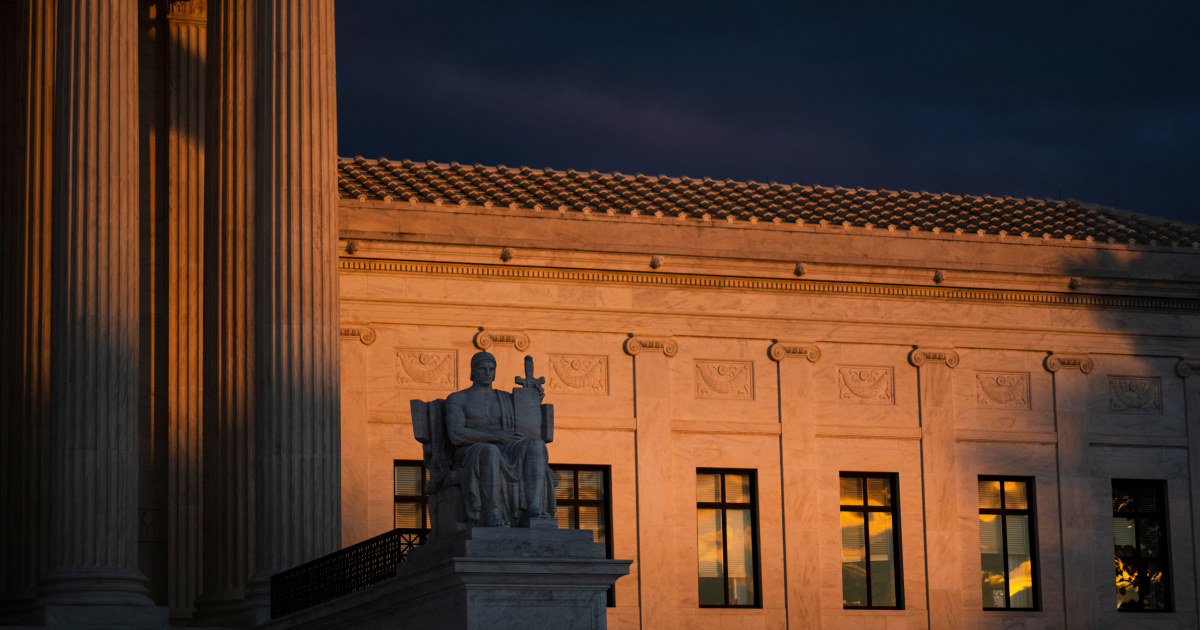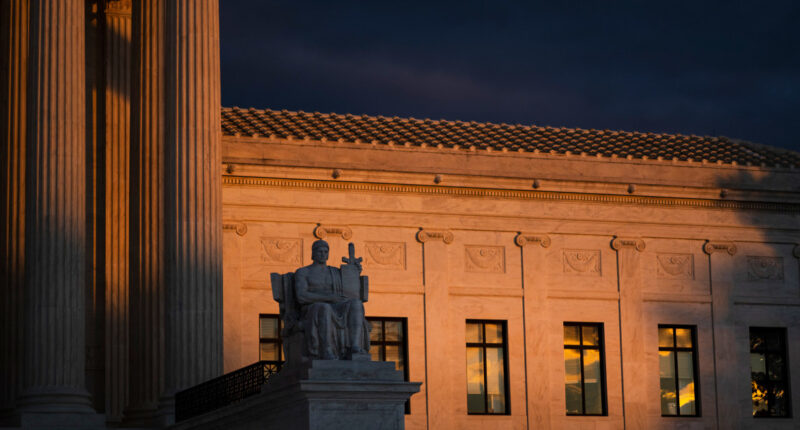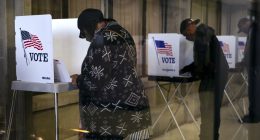
Many Asian American groups and leaders are speaking out against the Supreme Court ruling that struck down affirmative action Thursday.
Some experts and activists argued that the decision is an example of Asian Americans being used as a “wedge” to erode civil rights.
They point out that while the two cases, led by conservative activist Edward Blum — who is white — argued that Harvard and the University of North Carolina’s policies discriminated against Asian Americans, no Asian American students came forward to testify to experiencing discrimination.
“The white supremacist agendas behind these lawsuits use the small number of Asian Americans against affirmative action as pawns in their efforts — weaponizing the model minority myth to divide our communities,” The Georgia-based nonprofit Asian American Advocacy Fund said in a press release. “Affirmative action policies have played an important role in securing Asian American access to higher education.”
Polling shows that a higher share of Asian Americans support affirmative action, with 53% who have heard of the policy saying it’s “a good thing.” Another 19% say it’s a negative thing. A separate 2022 survey from the nonprofit group APIAVote, which polled registered Asian American voters, showed 69% favored affirmative action programs “designed to help Black people, women, and other minorities get better access to higher education.”
Some, however, expressed support for the ruling, including Rep. Michelle Steel, R-Calif.
“I am living my American Dream because, in this country, your actions determine your success — not your race and ethnicity,” she wrote on Twitter.
But Sally Chen, education equity program manager at the nonprofit group Chinese for Affirmative Action, called the characterization of the impact of race-conscious admissions on Asian Americans throughout the case “concerning.”
“Addressing racial inequity is not de facto racism. Addressing segregation and advancing diversity is not disadvantaging any group,” she said. “Throwing the idea that Asian Americans are somehow being harmed by efforts to address inequity, by efforts to address segregation, is a really concerning cover for what the proponents of this case have been trying to do.”
Advancing Justice representatives said the decision is anti-Black and perpetuates a systemic racism that’s always been present in higher education. They also reflected on the disproportionate impact it could have on underrepresented communities under the Asian American Pacific Islander umbrella.
“This ruling will particularly harm Pacific Islander, Native Hawaiian and Southeast Asian communities who continue to face significant barriers to higher education,” said Aarti Kohli, executive director of Advancing Justice’s Asian Law Caucus.
Rep. Judy Chu, D-Calif., Chair of the Congressional Asian Pacific American Caucus, said that the removal of affirmative action is “not a win.”
“For AANHPI communities, the end of race-conscious admissions is unlikely to change the net numbers of Asian American acceptances at elite institutions but AANHPI students from low-income, refugee, or indigenous backgrounds will encounter more hurdles to acceptance,” she said. “That’s no net positive and it’s why the majority of AANHPIs in America have expressed support for race-conscious admissions.”
Groups say they will continue to hold colleges accountable for making sure their campuses are diverse and their admissions processes are fair.
“We are outraged that the Supreme Court has chosen to ignore long-standing legal precedent in favor of supporting racial inequity that harms all people of color, including Asian Americans,” John C. Yang, Advancing Justice president and executive director, said in the statement. “We will not let this court decision keep us from pushing colleges and universities, Congress, and others to keep today’s ruling from undermining the progress made.”
Advocates say they’re also committed to creating opportunities for students of color who are trying to pursue higher education.
“The Court’s decision is a major setback for the ability of colleges and universities to create true equality in education,” Chinese for Affirmative Action said in a statement. “However, it is important to recognize that the ruling is strictly limited to race-conscious admissions, and not other important measures such as targeted outreach and recruitment, or ensuring more diverse faculty and college leadership.”
Students of color should still apply to elite schools, experts said.
“This decision is unrepresentative of what the majority of Americans support,” the Asian American Advocacy Fund wrote. “Despite attempts by those seeking to divide us to maintain white supremacy and existing power structures, communities of color are stronger than ever.”
Ultimately, this isn’t just about “a few seats at Harvard,” Kohli said.
“It’s about this Court’s denial of the continued reality that racism and segregation continue to warp and shape every aspect of our public lives, including access to education,” she told NBC News. “Turning away from racism and inequality in our country doesn’t make it go away.”
Source: | This article originally belongs to Nbcnews.com









